Sedation Dentistry Offers Relief for Dental Anxiety
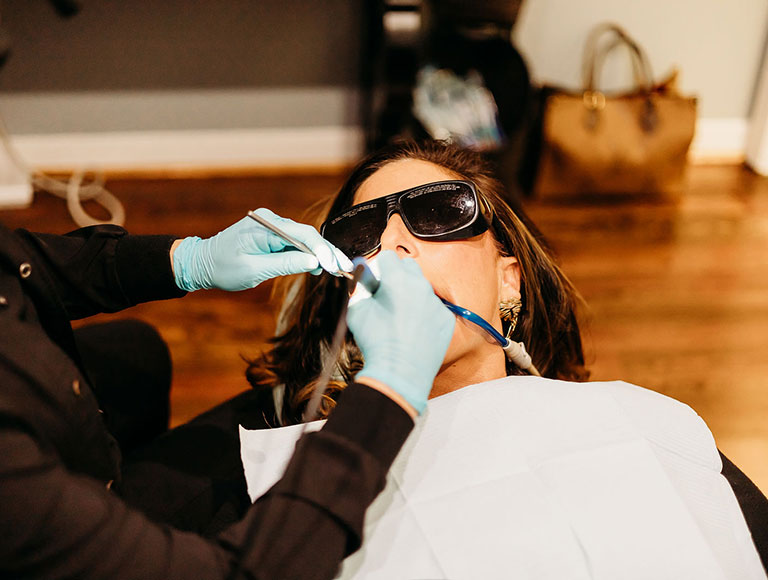
Are you anxious about visiting the dentist? You’re not alone. Millions of people delay or avoid dental care because of fear or anxiety. At Vero Dental Spa, we understand the concerns of our patients and are committed to providing a calm, comfortable experience. With Dr. Royal’s expertise in IV sedation dentistry, we ensure that every patient can receive the dental care they need without unnecessary stress.
If you’re looking for a new dentist in Vero Beach, FL, contact Vero Dental Spa today at (772) 778-5550. We offer comprehensive dental services and are welcoming new patients.
What Is Sedation Dentistry?
Sedation dentistry involves the use of medications to help patients relax during dental procedures. It’s an excellent solution for those who experience dental anxiety, have a low pain threshold, or require extensive dental work.
How Does Sedation Dentistry Work?
Sedation dentistry has various types of dental sedation to accommodate different patient needs. The three primary levels of sedation are:
- Minimal Sedation: Light sedation is normally offered in the form of nitrous oxide, also known as laughing gas. We’ll place a mask over your nose during the procedure, and the gas you inhale will relax you. The effects of light sedation wear off as soon as you stop inhaling the gas. You should feel completely normal after your procedure.
- Moderate Sedation: Moderate sedation requires the patient to take a sedative medication pill about an hour ahead of the procedure. The drug induces a considerably deeper state of relaxation, and you’ll probably have little recollection of the treatment. You’ll also need a friend or family member to drive you home after.
- Deep Sedation: Deep sedation is normally reserved for patients with extreme anxiety and longer, more complex dental procedures. It’s administered intravenously and will put patients on the verge of unconsciousness. You will not be aware of what’s going on during the procedure and will have no memory of it afterward. You’ll also need someone to drive you home after the treatment, as you may feel dizzy or disoriented for some time after.
Why Choose Dr. Royal for Sedation Dentistry in Vero Beach?
Advanced Certification and Training
Dr. Royal’s certification in IV sedation sets him apart as a leading provider of sedation dentistry in Vero Beach. With his extensive training, he ensures that your experience is not only comfortable but also safe and effective.
State-of-the-Art Facility
Our dental practice is equipped with advanced technology and amenities designed to make you feel at ease. From cozy treatment rooms to personalized care, every detail is tailored to enhance your comfort.
Compassionate Dental Care
At Vero Dental Spa, we treat every patient like family. Dr. Royal and his team take the time to understand your concerns and develop a sedation plan that works for you. Your well-being is our top priority.
Types of Sedation Dentistry
Nitrous Oxide
Nitrous oxide, also known as laughing gas, is a commonly used sedative that induces a state of relaxation. Administered through a mask over the nose, nitrous oxide allows you to remain awake while feeling at ease. It’s an excellent option for those with mild anxiety or who need a quick recovery after the procedure.
IV Sedation
IV sedation delivers medication directly into your bloodstream, inducing a deep state of relaxation. While you won’t be fully unconscious, you might not remember the procedure afterward. IV sedation is ideal for more complex treatments and patients with significant dental phobias.
Oral Conscious Sedation
Oral sedation is taken in pill form before the procedure, offering a higher level of relaxation than nitrous oxide. While you’re awake, you might feel drowsy and less aware. Oral sedation is particularly useful for patients with moderate anxiety or long procedures.
General Anesthesia
Reserved for extensive procedures or cases where patients must be completely unconscious, general anesthesia ensures you’re asleep. An anesthesiologist administers the medication and closely monitors your vital signs. This type of sedation is typically for oral surgeries or lengthy treatments.
Local Anesthetic
While not a form of sedation, local anesthetic has many pain-relieving effects. It involves injecting numbing medication into the treatment area, ensuring you don’t feel pain during the procedure. Local anesthetists are often combined with minimal or moderate sedation for a comprehensive comfort experience.
Benefits of Sedation Dentistry
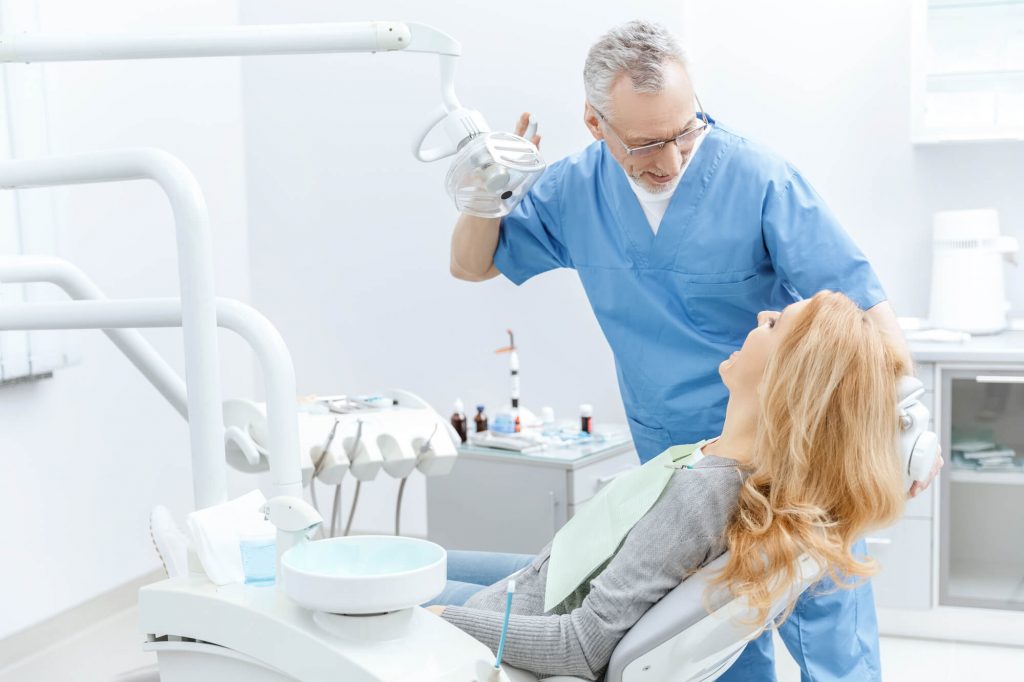
Sedation dentistry benefits include:
- Anxiety Relief: Dental anxiety is a real concern, often preventing individuals from seeking necessary treatments. Sedation dentistry alleviates this anxiety, making dental visits more manageable.
- Pain Management: Sedation can also include pain-relief properties, ensuring minimal discomfort during and after the procedure.
- Time Efficiency: Since patients are more relaxed, dentists can perform complex procedures more efficiently, reducing the appointments required.
- No Memory: For those with dental phobias, having little to no memory of the procedure can be a significant relief.
- Gag Reflex Control: Some individuals have an overly sensitive gag reflex, making dental procedures challenging. Sedation helps control this reflex, easing the process.
- Improved Oral Health: By overcoming anxiety and addressing dental issues promptly, sedation dentistry helps prevent more serious oral health problems in the future.
Do You Need Sedation Dentistry?
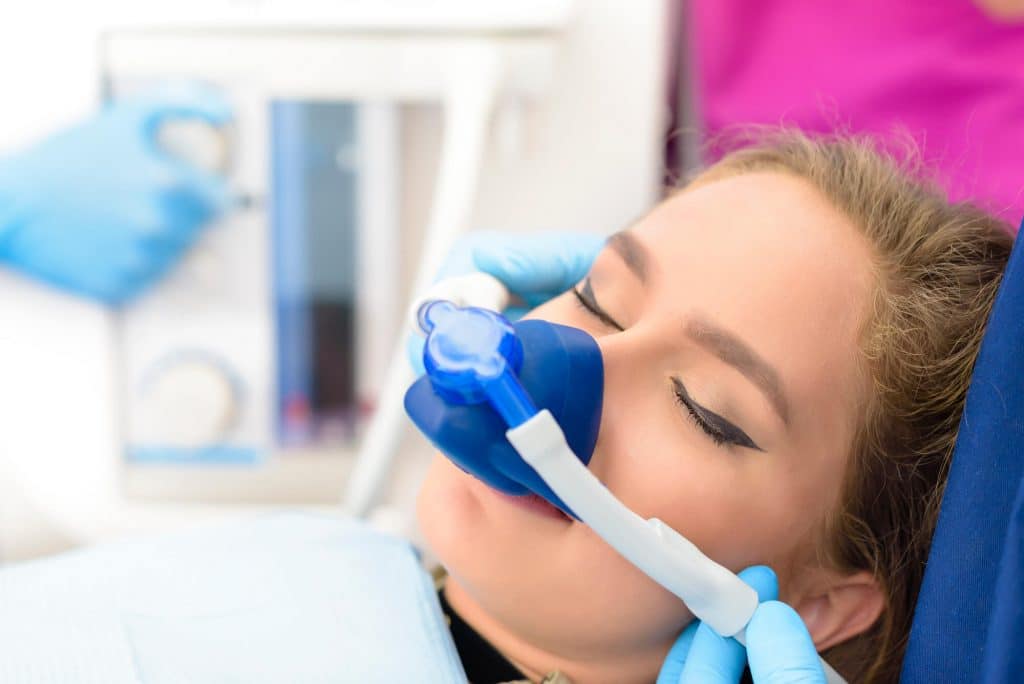
While sedation dentistry can benefit many, it might work in certain cases. People who fall into the following categories might not be good candidates for sedation dentistry:
- Allergic Reactions: Individuals with a history of severe allergic reactions to sedative medications or any components used in the sedation process should avoid sedation dentistry.
- Certain Medical Conditions: Patients with certain medical conditions, such as severe respiratory issues (like untreated sleep apnea), heart problems, or uncontrolled high blood pressure, may not be suitable for sedation due to potential risks.
- Pregnant Women: Pregnant women are generally advised to avoid sedation dentistry, especially during the first trimester, as the effects of sedative medications on the developing fetus aren’t well understood.
- Drug Interactions: People taking certain medications, particularly those that can interact with sedatives, should consult with their healthcare provider before undergoing sedation dentistry.
To schedule an appointment, contact our Vero Beach dentist today. From oral sedation dentistry to IV sedation, we’ll discuss your options for dental treatment.
Dental Sedation Monitoring and Safety
No matter the type of sedation used, patient safety is paramount. Dental professionals closely monitor vital signs and adjust the sedation levels to ensure your well-being throughout the procedure.
Incorporating various types of sedation into dental practice allows for a truly patient-centric approach. Whether you have mild anxiety or require extensive treatment, sedation dentistry offers a solution to ensure your dental experience is as comfortable and stress-free as possible.
Sedation Dentistry Costs
On average, the costs of sedation dentistry range from $25 to $1,500 or more. The cost of sedation dentistry can vary widely depending on several factors, including the type of sedation used, the geographic location of the dental practice, the complexity of the dental procedure, and the dentist’s or oral surgeon’s fees.
What to Expect During Your Sedation Dentistry Visit
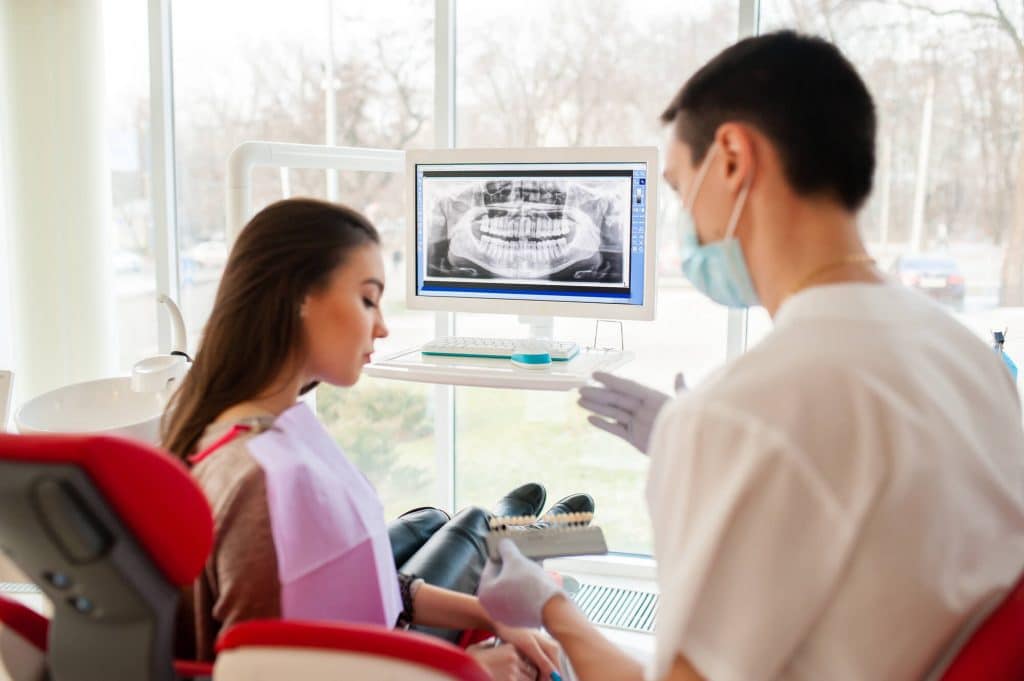
- Initial Consultation: During your first visit, Dr. Royal will evaluate your dental needs, medical history, and anxiety level to determine the best sedation option for you.
- Preparation: Depending on the type of sedation, you may need to follow specific instructions, such as fasting before your appointment or arranging for a companion to drive you home.
- Procedure: Day On the day of your procedure, our sedation dentist and team will ensure you’re comfortable and monitor your vital signs throughout the treatment to ensure your safety.
- Recovery: Most patients recover quickly from sedation and can resume normal activities within a few hours. Dr. Royal will provide aftercare instructions to ensure a smooth recovery.
To schedule an appointment at Vero Dental Spa, contact our sedation dentist today at (772) 778-5550.
Side Effects from Dental Sedation
Stronger sedation can increase the number and intensity of side effects you may experience. These may include:
- Disorientation
- Dizziness
- Dry mouth
- Headaches
- Nausea
- Vomiting
If you’re fearful of the dentist and avoid regularly scheduled checkups, we’d be delighted to help you. Our comprehensive sedation dentistry services can help even the most anxious patient enjoy excellent dental health. Call Vero Dental Spa today to arrange a consultation appointment!
Frequently Asked Questions
Can anyone get sedation dentistry?
Sedation works for most patients, but your dentist will evaluate your health to determine the best approach. It’s especially beneficial for those with anxiety, a strong gag reflex, or extensive treatment needs.
Will I be unconscious with sedation dentistry?
The level of sedation determines your level of consciousness. With nitrous oxide, you’ll remain fully awake but relaxed. IV sedation or oral conscious sedation dentistry may make you drowsy or put you in a light sleep-like state.
Schedule a Dental Appointment at Vero Dental Spa!
Don’t let dental anxiety hold you back from achieving a healthy, beautiful smile. At Vero Dental Spa, Dr. Royal and his team are here to make your dental experience as comfortable as possible. With advanced sedation options and personalized care, you can relax knowing you’re in expert hands.
Contact our sedation dentist in Vero Beach, FL, today by calling (772) 778-5550.
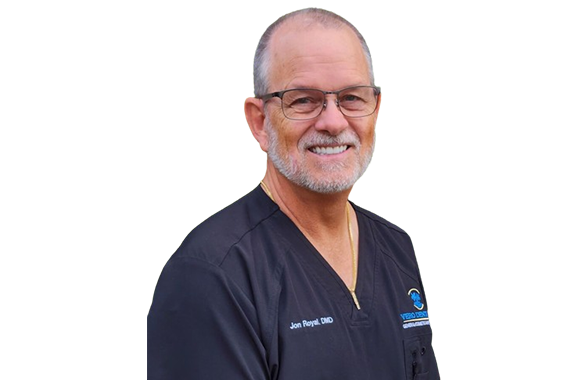
Get Your Complimentary
Consultation or 2nd Opinion
- Exam
- Full mouth X-ray
- Private Consultation with Doctor ($350 value)
- 3036 20th St,
Vero Beach, FL 32960 - (772) 778-5550
Working hours
- Monday: 8am - 5pm
- Tuesday: 8am - 5pm
- Wednesday: 8am - 5pm
- Thursday: 8am - 5pm
- Friday: 8am - 1pm
- Saturday & Sunday: Closed
